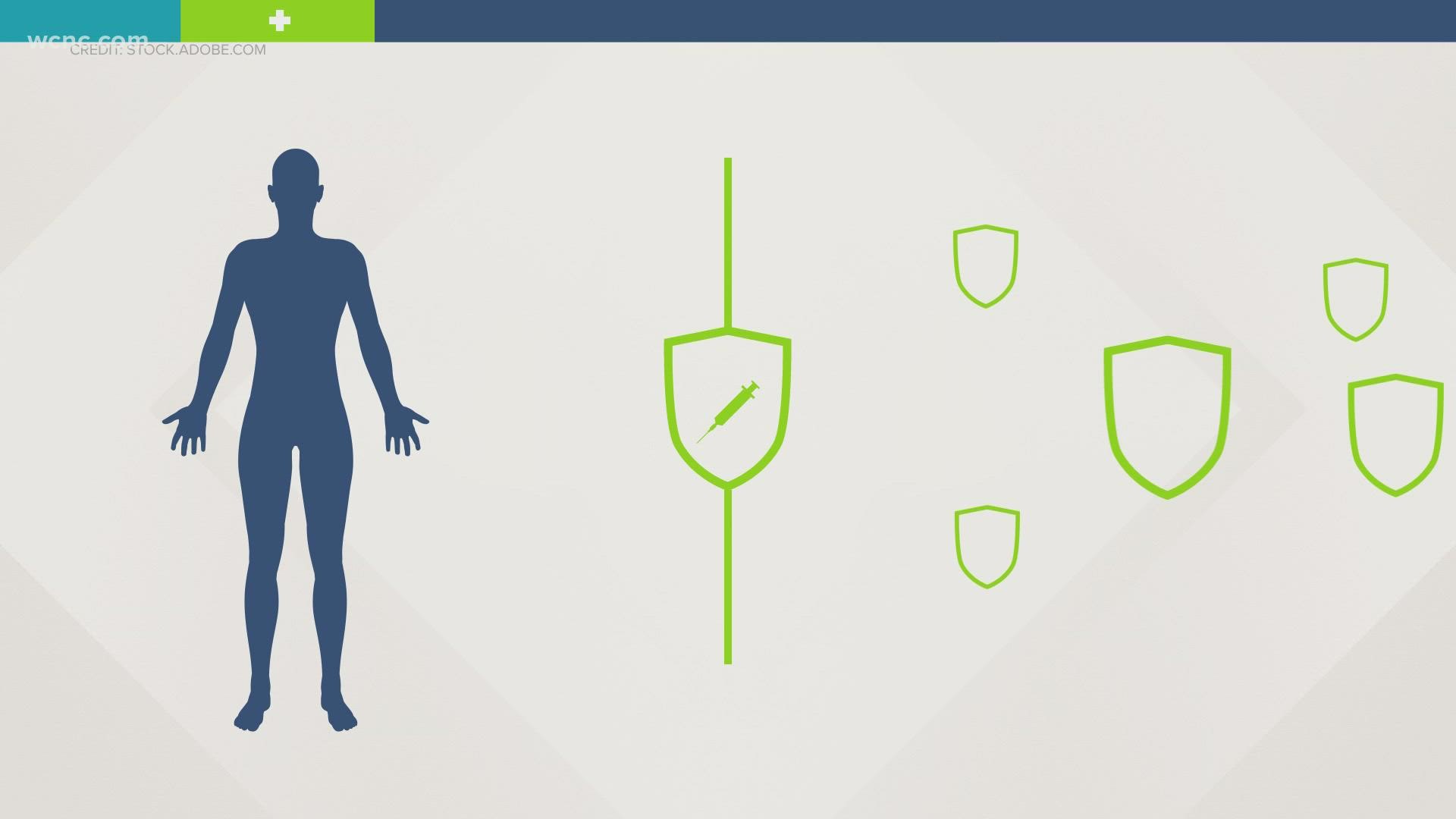CHARLOTTE, N.C. — A Food and Drug Administration panel discussed emergency authorization of a booster shot for those who got the Moderna COVID-19 vaccine and for those who got Johnson and Johnson's vaccine. Thursday afternoon, the panel voted to recommend emergency use of a Moderna booster for people 65 and older and for those at higher risk for coronavirus complications due to medical conditions or occupation and living setting. Friday, the panel will discuss Johnson and Johnson's authorization.
Certain at-risk groups who were fully vaccinated with Pfizer have already been getting their boosters after sign-off from the FDA and CDC.
Doctors say these shots are meant to reduce the risk of what is called a "breakthrough" infection, which is the development of infection despite full vaccination against disease.
'Your life could depend on it' | COVID-19 ICU nurse exhausted after 19 months on the front lines
Dr. David Priest, an infectious disease specialist with Novant Health, says breakthroughs are not unexpected and they are not necessarily considered signs of vaccine failure. He says that is because the true purpose of a vaccine is to prevent death and severe illness, noting that people experiencing a breakthrough infection will likely see their symptoms and risk of death lessened.
Priest explained what is likely happening biologically when someone becomes a breakthrough case, and how the current booster shots are meant to help prevent that from happening.
"The first six months after you get the vaccine, not only does it prevent you from going to the hospital and dying, it also prevents you from getting asymptomatic and mild cases pretty well," he said.
According to drug-maker AstraZeneca's explanation of how a vaccine works with the immune system, that is because "in the days and weeks following vaccination, there is an initial surge in immune cells and antibodies that act as the 'frontline fighters' against a foreign invader in the body." However, these antibodies start to fade away over time.
However, Priest says memory B and T-cells remain, which act like your body's blueprint to make neutralizing antibodies again in the future if it encounters the viral invader.
"The way the immune system works is those memory cells are created, and that's really going to protect you long-term, and you don't need neutralizing antibodies. Your immune system assumes you don't need those, and those fade over time," he said.
Priest said when a person has a COVID-19 exposure as their neutralizing antibodies have waned to a low enough level, an infection can start to develop before your body is able to fully ramp its response back up.
"Your memory cells take a little bit of time to get ramped up again when you're exposed to the virus. It's got to make more neutralizing antibodies," Priest said.
Eventually, the body is able to build back its protections, keeping the infection, for many, mild, or even asymptomatic. The vaccine still worked, even though an infection developed.
Priest said that is where the current booster shots come in, acting like preventative maintenance on immunity so COVID-19 has a lesser shot of getting in.
"What that third dose does is really just say 'we're going to give you a little more neutralizing antibodies to avoid it all together', even though you're pretty protected from hospitalization and death," he said.
Contact Vanessa Ruffes at vruffes@wcnc.com and follow her on Facebook, Twitter and Instagram.

